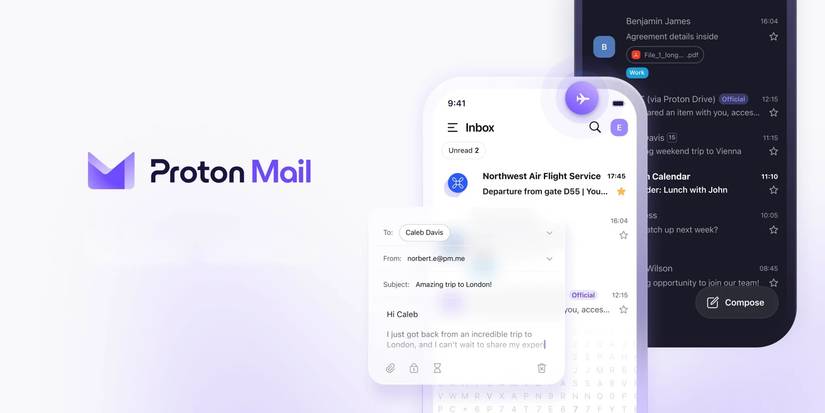Encrypted email provider Proton has just rolled out what it’s calling the biggest update in Proton Mail’s history — a complete rebuild of its mobile apps for both Android and iOS. The new apps, which the company is labeling Proton Mail v7, were rebuilt from the ground up with a focus on speed, consistency, and a modernized interface. It hopes to address the most common concerns of its increasing user base.
Proton takes cues from user feedback
Better performance and feature parity are at the top of the list
Proton says its development team spent the past year rethinking how people actually use email on their phones. That means navigation that’s simpler, a cleaner layout, and faster access to common actions like composing a new message, all while keeping Proton Mail’s privacy-first DNA intact.
Performance leads the way in the new software’s push. According to Proton, inbox scrolling, archiving, and replying now feel instantaneous and clock in at roughly twice the speed of previous versions. There’s also a fully functional offline mode, letting you read, draft, and organize emails without a connection; a must-have for travelers who spend time in planes, trains, or dead zones.
One of the biggest user-facing changes is that feature parity has finally arrived across platforms. Whether you’re on Android or iOS, you now get the same features at the same time, including long-requested tools like snooze and message scheduling for Android users. That’s thanks to Proton’s decision to unify around a shared code base, with roughly 80% of the new apps’ logic written in Rust and synced across platforms.
While this release focuses on email, Proton hints that the new architecture will accelerate future development for Proton Calendar and other services in its growing privacy suite.
The rollout is gradual, so you might not see the update right away. Android users can expect it to land automatically in the coming days, while iOS users can grab it manually from the App Store if they’re eager to try it now. Hopefully, for its many privacy-conscious users, this is just the start of Proton’s next chapter.


